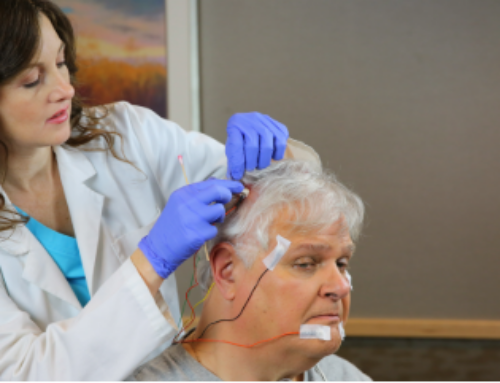A team of sleep researchers led by University of California, Riverside psychologist Sara C. Mednick has confirmed the mechanism that enables the brain to consolidate memory and found that a commonly prescribed sleep aid enhances the process. Those discoveries could lead to new sleep therapies that will improve memory for aging adults and those with dementia, Alzheimer’s, and schizophrenia.
“We found that a very common sleep drug can be used to increase verbal memory,” said Mednick. “This is the first study to show you can manipulate sleep to improve memory. It suggests sleep drugs could be a powerful tool to tailor sleep to particular memory disorders.”
The study, published in The Journal of Neuroscience, involved a total of 49 men and women between the ages of 18 and 39 who were normal sleepers and were given varying doses of zolpidem (Ambien) or sodium oxybate (Xyrem), and a placebo, allowing several days between doses to allow the pharmaceuticals to leave their bodies. Researchers monitored their sleep, measured sleepiness and mood after napping, and used several tests to evaluate their memory.
The researchers found that zolpidem significantly increased the density of sleep spindles and improved verbal memory consolidation.
Earlier research found a correlation between sleep spindles — bursts of brain activity that last for a second or less during a specific stage of sleep — and consolidation of memories that depend on the hippocampus. The hippocampus, part of the cerebral cortex, is important in the consolidation of information from short-term to long-term memory, and spatial navigation. The hippocampus is one of the first regions of the brain damaged by Alzheimer’s disease.
Mednick and her research team demonstrated, for the first time, the critical role that sleep spindles play in consolidating memory in the hippocampus, and they showed that pharmaceuticals could significantly improve that process, far more than sleep alone.
The American Academy of Sleep Medicine considers sleep disorders an illness that has reached epidemic proportions. Board-certified sleep medicine physicians in an AASM-accredited sleep center provide effective treatment. AASM encourages patients to talk to their doctors about sleep problems or view our searchable directory of sleep centers.





